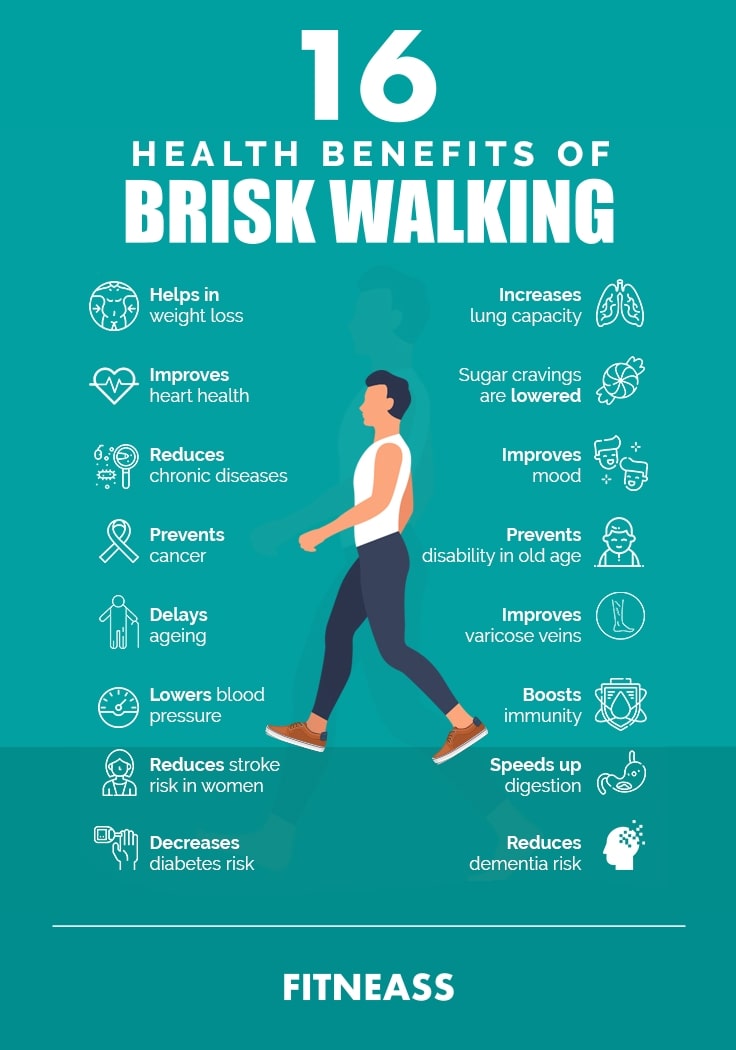

Benefits of brisk walking trial#
But when compared with the stretching and toning group, the group that walked for fitness improved aerobic fitness more, had decreased stiffness in neck arteries, and showed increased blood flow to the brain in ways that researchers think could provide more cognitive benefits in the long term.Ī clinical trial of older adults in Japan published in the Journal of the American Geriatrics Society in 2015 found that after 12 weeks, men and women in a prescribed daily walking exercise group had significantly greater improvements in memory and executive function (the ability to pay focused attention, to switch among various tasks, and to hold multiple items in working memory) compared with those in a control group who were told just to carry on with their usual daily routine.Īnd a study of 299 adults, published in the journal Neurology in 2010, found that walking was associated with a greater volume of gray matter in the brain, a measure of brain health.ĥ. Better memory and cognitive function: A 2021 study published in the Journal of Alzheimer’s Disease found that when adults 55 or older with mild cognitive impairment were assigned to either stretching and toning exercises or to aerobic training-mostly walking-both groups showed some improvement on cognitive tests.


Lower fasting blood sugar (glucose): Higher blood glucose levels are a risk factor for diabetes, and the National Walkers’ Health Study also found that walkers had a 12 percent lower risk of type 2 diabetes.Ĥ. Lower blood pressure and cholesterol: The National Walkers’ Health study found that regular walking was linked to a 7 percent reduced risk of high blood pressure and high cholesterol.ģ.


 0 kommentar(er)
0 kommentar(er)
